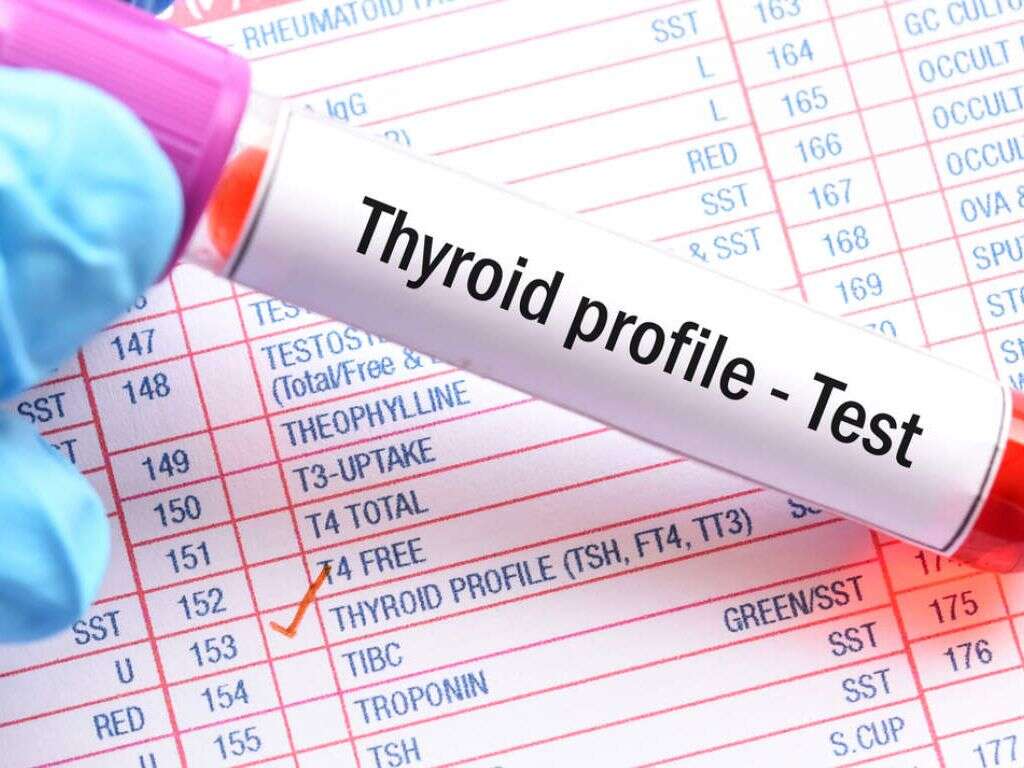10 Hyperthyroidism Symptoms
Hyperthyroidism is a condition that occurs when the thyroid gland is producing excessive thyroid hormones. The thyroid gland is a small butterfly shaped gland located in front of your neck. It has two lobes, the left and right and is connected by the isthmus. Thyroid hormones are important as they help regulate your body’s metabolism by controlling how it uses energy. It therefore affects almost the entire body.
If hyperthyroidism is left untreated, it can lead to serious complications that affect the heart, bones, muscles, fertility, menstrual cycle, and even issues in a pregnant mother and child. The overall incidence is estimated to be about 0.05% to 1.3% of the global population. In the United States, Caucasians and Hispanics have a higher likelihood of having hyperthyroidism compared to other populations. It also occurs more in females compared to males.

Symptom #1: Weight Loss
In hyperthyroidism, due to the excessive levels of active thyroid hormones, the metabolism of the body increases leading to weight loss despite an increase in appetite. Patients usually report an approximate loss of an average of 15% of their normal weight.
In the body, there is increased lipolysis (the breakdown of lipids through the process of hydrolysis into free fatty acids and glycerol) and lipogenesis (fatty acid formation).

Symptom #2: Palpitations
Palpitations can be defined as a perceived abnormality of the heartbeat where the patient is often aware of the changes of cardiac muscle contractions. It can be intermittent, continuous, and associated with other symptoms such as dizziness, shortness of breath, chest pain, and sweating. In hyperthyroidism, palpitations occur due to a change in the nervous system’s control of the heart. The increased thyroid hormones raise the body’s basal metabolic rate causing it to work harder. This leads to the heart pumping harder and faster even at rest or sleep. Tachycardia is commonly seen in hyperthyroid patients at rest.
Since the heart is working harder and pumping out more blood, the increased workload on patients with weak hearts can often lead to heart failure. In some cases, it can lead to an irregular heart rhythm known as atrial fibrillation. Atrial fibrillation happens when the chaotic beating of the atria become less effective leading to poorer filling of the ventricles and inefficient pumping of blood. It is seen in 5 to 15% of hyperthyroid patients.

Symptom #3: Menstrual Irregularity
While menstrual irregularity is not a symptom specific to hyperthyroidism, it can be a telling sign if you are also experiencing other symptoms such as palpitations, unintentional weight loss, diarrhea, anxiety, and intolerance to heat. Menstrual irregularity can be caused by both too low or too high levels of thyroid hormones. Since the thyroid hormones regulate and affect almost every function in the body, it also helps control your menstrual cycle.
It can cause amenorrhea (cessation or menstruation for several months or longer), issues with fertility (once it affects the menstrual cycle, it also affects ovulation which in turn affects your chances of conception) and can even cause issues for a pregnant mother and her baby. If you are pregnant and suspect hyperthyroidism, you should seek medical attention as soon as you can.

Symptom #4: Anxiety
The thyroid gland is like your body’s energy factory. When it is excessively producing thyroid hormones, the body goes into a state of overdrive causing you to feel overwhelmed or like you are spinning out of control. As many as 12% of patients with hyperthyroidism often report symptoms of anxiety such as panic attacks, breathlessness, tachycardia (fast heart beat), diarrhea, sweating, and insomnia.
Many patients with these issues can be misdiagnosed as having an anxiety disorder. However, all it takes to determine if your anxiety symptoms are caused by hyperthyroidism is a simple thyroid function test that can be ordered by your doctor.

Symptom #5: Intolerance to Heat
Since there is excessive production of thyroid hormones in hyperthyroidism, the excess hormones increase the body’s basal metabolic rate.
This causes an overactive cell function that leads to rising body temperature. In patients who are intolerant to heat, you may also notice perspiration and flushing. The affected individual is often sweaty and red-faced even in a cool environment.

Symptom #6: Muscle Weakness
About 70% of patients with hyperthyroidism may develop weakness in the proximal muscles. Proximal muscle weakness only affects muscles that are closest to the trunk of the body such as the upper arms and hips.
With treatment and physiotherapy, muscle strength can return to full capacity usually within two months. It is also known as thyrotoxic myopathy. Besides muscle weakness, there is breakdown of muscle tissue and fatigue. Physical activity can often become increasingly difficult.

Symptom #7: Dyspnea
In hyperthyroidism, weakness of the skeletal muscles may occur. This is also seen in the diaphragm and intercostal muscles. Patients with hyperthyroidism have reduced respiratory muscle strength.
It is often seen in patients with hyperthyroidism during exercise and even at rest. While the cause is yet to be fully understood, experts believe that it might be associated to inappropriate ventilatory response because of the increased metabolic rate.

Symptom #8: Frequent Bowel Movements
Hyperthyroidism causes the overactivity of the sympathetic system.
This sympathetic hyperstimulation causes the gut to have increased motility leading to malabsorption and frequent bowel movements or diarrhea. The intestinal hypermotility reduces the transit time in the gastrointestinal tract.

Symptom #9: Protruding Eyes
In some cases of hyperthyroidism, the eyes can protrude. Medically, this is known as exophthalmos where the eye bulges anteriorly out of the orbit. In hyperthyroidism, it is often bilateral. It can also be seen in other conditions but is usually unilateral in these cases.
If untreated, it can lead to the failure of the eyelids to close completely over the eyes leading to dryness and damage of the cornea. Thyroid eye disease is also known as Grave’s ophthalmopathy. It should be treated as soon as possible as the optic nerve can be affected leading to permanent damage to sight.

Symptom #10: Lump in the Neck
In some cases of hyperthyroidism, the thyroid gland may be enlarged, this is known as a goiter. This enlargement of the butterfly shaped gland is located at the base of the neck beneath the Adam’s apple (the laryngeal prominence or projection in the front of the neck that is formed due to the thyroid cartilage and is usually more obvious in men).
While goiters are painless, a goiter that is large enough can cause obstructive issues leading to cough, difficulty swallowing, difficulty breathing, and engorged neck veins.










